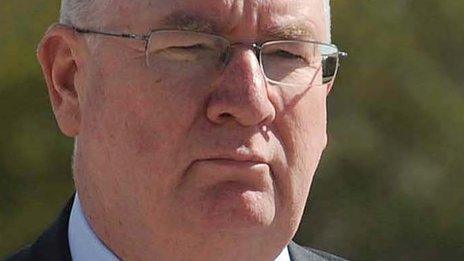NI police ombudsman wins right to challenge over 'obstruction'
- Published
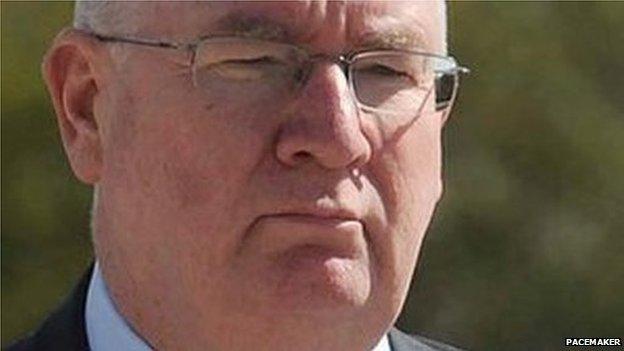
Michael Maguire (pictured) is taking legal action in an attempt to force the chief constable to hand over sensitive intelligence material
The police ombudsman has been granted leave for a judicial review of the chief constable's decision to withhold information about 60 murders.
Michael Maguire is taking the PSNI to court in an attempt to force it to hand over sensitive intelligence material.
A judge has delayed the legal hearing for two weeks to allow both parties to come to an agreement.
The High Court heard that investigators for the ombudsman were turned away from PSNI buildings.
It was also claimed that requests for information on the cases had been turned down on more than 100 occasions.
The action centres on investigations into recent and historic cases involving allegations of police criminality and misconduct by failing to properly probe murders.
Claims of collusion between some police officers and the killers feature in many.
One of the cases in which the PSNI stands accused of obstructing Police Ombudsman Michael Maguire's staff is the loyalist murders of six people in Loughinisland, County Down.
The men were shot dead as they watched the 1994 World Cup in the Heights bar.
The High Court also heard that access to material is being sought in up to 19 ongoing investigations.
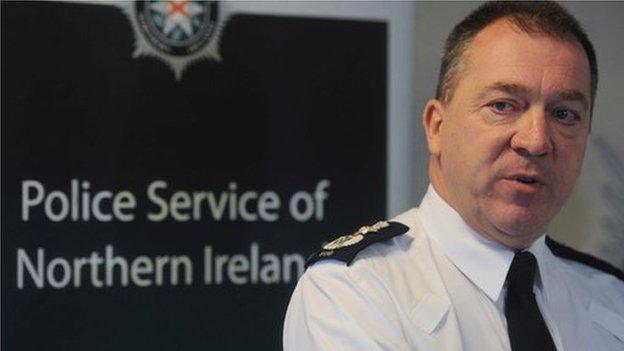
The PSNI is headed by Mr Baggott who is due to retire at the end of June
Barrister Stephen McQuitty, for the ombudsman, told Mr Justice Treacy proceedings had not been issued lightly.
Arguing that the PSNI was under an obligation to hand over information, he claimed: "The refusal to provide that material is irrational."
It was contended that the police reasoning was misconceived and mistaken.
"There's been an unjustified departure from a memorandum of understanding that exists between the police and the ombudsman," he said.
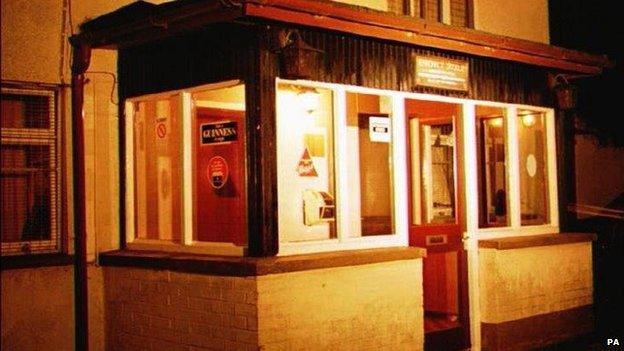
Six men were shot dead by the UVF at the Heights bar, Loughinisland, in 1994
Although the document came into operation last September, the court heard that the breakdown in relationships was confirmed in April.
Referring to an affidavit from Adrian McAllister, chief executive in the police ombudsman's office, Mr McQuitty claimed the PSNI began to express concerns about sharing information.
"It was not raised formally but manifested itself in police ombudsman staff being turned away from PSNI buildings when they had arranged to view sensitive material," he said.
"It became apparent to the police ombudsman that a different approach had been taken."
Senior counsel for the police Tony McGleenan QC said that the ombudsman has been requesting and receiving sensitive material for years.
But in certain cases the chief constable has asked what function is being pursued, he said.
Stored securely
Mr McGleenan said: "This is a case that would have benefited from, and could still benefit from, engagement between the parties outside hostile, adversarial litigation."
Concerns were also raised over how any information would be handled and shared after being handed over.
An undertaking given by the police ombudsman about procedures for ensuring material is stored securely has still to be fully implemented, the court heard.
Urging the judge to adjourn the case to allow further attempts to reach an agreement, Mr McGleenan said: "A very large volume of requests by the police ombudsman have been responded to by police."
However, Mr Justice Treacy ruled that leave to seek a judicial review should be granted on the basis that the ombudsman had established an arguable case.
But rather than fixing a date for a full hearing of the challenge, he decided to adjourn for two weeks.
He said: "So far as possible for the court to read the runes that arise from the submissions that have been made, it's quite possible this matter might be resolved between the parties and won't proceed to a substantive hearing.
"One would hope that will happen."
- Published5 December 2013
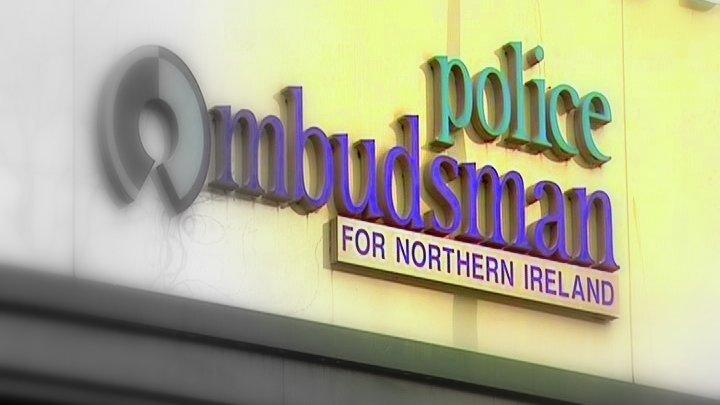
- Published23 January 2013
